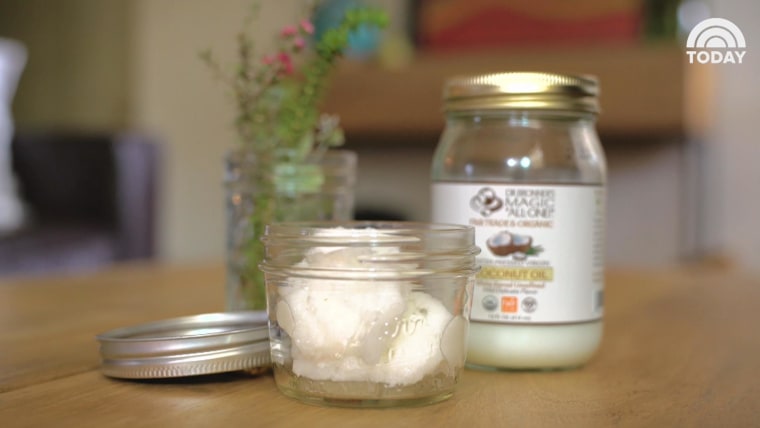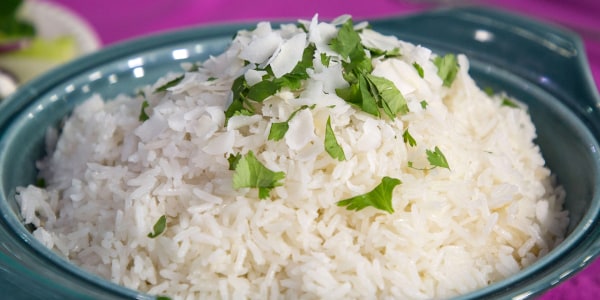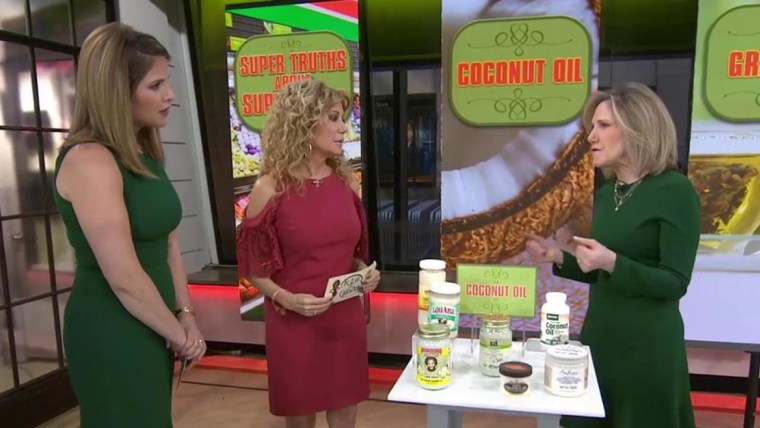Best Avocado Oil For Cooking
For beauty problems, coconut oil is now considered a cure-all. But should this bathroom staple that works wonders on dry skin, frizzy hair and even stubborn waterproof makeup also be the first thing you reach for in your kitchen pantry? The short answer: It depends. So, TODAY Food recently spoke with a few experts to find out everything you need to know about cooking with coconut oil.

What is coconut oil?
If you follow the keto or paleo diet, you're probably already familiar with coconut oil. In recent years, it's even been touted as a "superfood." But even before this plant-based fat went mainstream, it was a part of our lives.
"If you look back 30 years, you'll find coconut oil in the kitchen under the name palmitin," says Sonja Ricke, a nutritionist at one of Europe's leading wellness resorts, Grand Resort Bad Ragaz. If you've ever looked at a list of ingredients on a tub of margarine or even a box of cookies, you may have seen palmitin or palmitic acid. Palmitin is the most common saturated fat found in plants — including coconuts — and animals.
Coconut oil is 100% fat, 90% of which is saturated. It comes from the flesh of a coconut, and is popular in many Southeast Asian countries. Because these countries are associated with lower rates of heart disease, it's easy to assume that coconut oil is healthy. Nutrition-wise, one tablespoon of coconut oil contains 130 calories and 14 grams of fat, 13 of which are saturated. For comparison, one tablespoon of olive oil has 120 calories and 14 grams of fat, only two of which are saturated.
There are two types of coconut oil: virgin and refined coconut oil. Virgin coconut oil is cold-pressed and extracted without using solvents; it's considered to be "pure" or unrefined. Refined coconut oil involves significant processing and often includes additives; it's what you find on most supermarket shelves.
How to cook with coconut oil
Before you begin cooking with coconut oil, it's important to understand which type you're using. The smoke point of virgin coconut oil is 350°F — best for baking and sautéing. The smoke point of refined coconut oil is 400°F, which makes it a better option for frying or cooking at higher temperatures. In most cases, you can substitute coconut oil 1:1 for other oils and butters.
Since coconut oil usually comes in glass jars and is solid at room temperature, the best way to measure it is typically to heat it up until it's a liquid (76°F). If you're sautéing with coconut oil or using it to grease baking pans, consider buying it in cooking spray form. Whether it's in a jar or a spray can, coconut oil can be stored in your pantry or fridge.
The advantages of cooking with coconut oil
For starters, coconut oil, especially virgin coconut oil, is rich and flavorful. TODAY Food nutritionist Bonnie Taub-Dix, MA, RD, CDN says that's one of the biggest reasons coconut oil is all the rage. It's also a great animal-friendly alternative to butter. Executive Chef Simon Apollonio at Carillon Miami Wellness Resort in Miami substitutes coconut oil for butter in the resort's vegan dishes including a very popular coconut panna cotta. He also uses it when preparing traditional dishes from the South Pacific.

Nathan Congleton / TODAY
Nutrition-wise, coconut oil, especially virgin coconut oil, is said to have antioxidants and anti-inflammatory properties. According to Dr. Oz, coconut oil can also help boost thyroid function and ward off illness-causing bacteria and viruses. However, most health claims made about coconut oil, such as how its medium-chain triglycerides increase good cholesterol, are based on short-term, smaller studies. Coconut oil is still relatively new to the Western diet. For that reason, many experts agree it should be used sparingly.
The disadvantages of cooking with coconut oil
The biggest disadvantage of cooking with coconut oil has to do with consuming it. In fact, in 2018, a Harvard professor called it "pure poison." That's because coconut oil is basically just straight saturated fat. For decades, saturated fat has been linked to raising bad cholesterol (LDLs) which can ultimately lead to clogged arteries and cardiovascular disease.
"I don't think it should be relied upon as a major source of fat in your diet," Taub-Dix told TODAY. "I prefer choosing fats on a regular basis that contain less saturated fat and more mono-unsaturated fat." She prepares most of her dishes with olive oil or avocado oil.

Ricke agrees: "I never recommend coconut oil. For me there is neither a health, especially if you're trying to lose weight, or ecological benefit." She uses olive oil, walnut oil or rapeseed oil, which she says are all more nutritious.
It's OK to buy, but probably not in bulk
Unless you're using coconut oil to condition your hair or treat a bad sunburn, you probably shouldn't be buying it at Costco. It's not a bad idea, however, to have some on hand for occasional use in the kitchen, especially if you have a vegan in the house.
Serena Poon, nutritionist and celebrity chef, tells TODAY that if you are buying coconut oil for cooking, be mindful of its origin and sourcing. "Refined coconut oil and partially hydrogenated coconut oil can actually be harmful, as they may contain chemicals, bleach or trans fats. Reach for virgin or unrefined coconut oil (organic whenever possible) for optimal health benefits."
Best Avocado Oil For Cooking
Source: https://www.today.com/food/everything-you-need-know-about-cooking-coconut-oil-t157784
Posted by: justicebeirsed.blogspot.com

0 Response to "Best Avocado Oil For Cooking"
Post a Comment